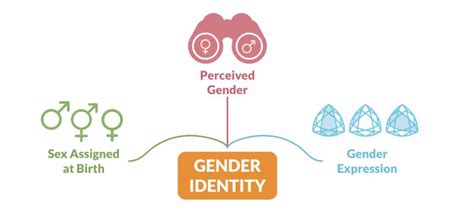A Nonbinary Individual’s Foray into Corporate A.V.
Being nonbinary in central Pennsylvania provides a unique set of challenges, to say the least. I’m very proud of my identity as an enby, and have been out for over half a decade. That doesn’t necessarily mean that things have been easy, though.
I graduated college in Selinsgrove, PA last year, and it was very fascinating the difference in treatment I received across different departments. I was a very dedicated and busy student. I worked four jobs at one point in my college career, mostly in the realm of sound. I was known as “The Sound Guy” around the school. When I was working sound for the theatre, respect for my gender identity was a no-brainer. I remember introducing myself to a professor as the sound guy, and immediately he asked me my pronouns. Everyone was accepting, and in fact, all four of the other sound engineers in the program identified as nonbinary as well—go figure! It was always easy to be myself, and the professors were always respectful of their students in this manner. Music, however, was a different story.
I went to a classical music college, and the vast majority of my education followed the history and musical literature of old, Christian, and largely successful white men. (Shoutout to Hildegard von Bingam and Clara Schubert for bucking the trend, but they were the exception, not the rule.) I feel like this male-centric mindset really purveyed into the minds of faculty and students, even if it was subliminal. This old-school classical mentality meant that there were very few professors who really cared to respect my pronouns, no matter how many times I gently corrected them, or signed an email with (they/them) under my name. It didn’t change. To them, if I looked like a woman, I was one.
I remember when I first started at my job in Hershey. Much like my college experience, I was living in central PA and was still trying to find a workplace that was accepting of my gender identity. When I began, HR and management were very open to using my pronouns correctly, at least during the hiring process. That being said, I’m not a person who’s completely committed to correcting every misgendering slip I hear. I’m aware of the negative stereotyping surrounding that, and I’d like to avoid it at all costs, thanks. Yes, I’ll take the time to inform those whom I care about and to gently remind those whom I see on a regular basis. However, when it comes to other departments or guests, I’m not going to make a scene. (Heaven forbid someone makes an “I identify as an attack helicopter” joke, or a “Did you just assume my gender?!” joke. I don’t think I could take that lightly.) When I began my work there, however, I realized quickly that my A.V. colleagues could not care less how I identified. The hiring and onboarding training, preaching LGBTQIA+ and diversity acceptance, had seemingly been a guise to protect the company from potential lawsuits, rather than an actual company policy.
I wasn’t the only trans person in the workplace. A coworker of mine was (read: was, as she has since quit) a proudly-out transgender woman. She wore makeup, was on HRT, had long nails, and spoke in a high-pitched voice. By all accounts, she was recognizable as a woman, as far as the Western gender binary and all of its stereotypes decreed. As soon as I interacted with her, I knew she was a woman.
Maybe I was the only one who thought that way, because every member of the fifteen-person team (except myself and the one cis woman on staff,) referred to her as a man, and consistently with he/him pronouns. This caught me off guard.
Within the trans community, there is a wide berth of experiences to be had. There are those of us who are within the binary and choose to transition. Some of us don’t abide by the binary and transition, too. There are people with different means of gender identity and expression, different backstories, and different upbringings. We vary in economic class, race, and age. There is no right or wrong way to be trans, but rather a variety of experiences and hardships we face. This being said, if my cis male coworkers couldn’t understand a binary trans person’s experience enough to respect her identity, how on earth could they even begin to grasp mine?
